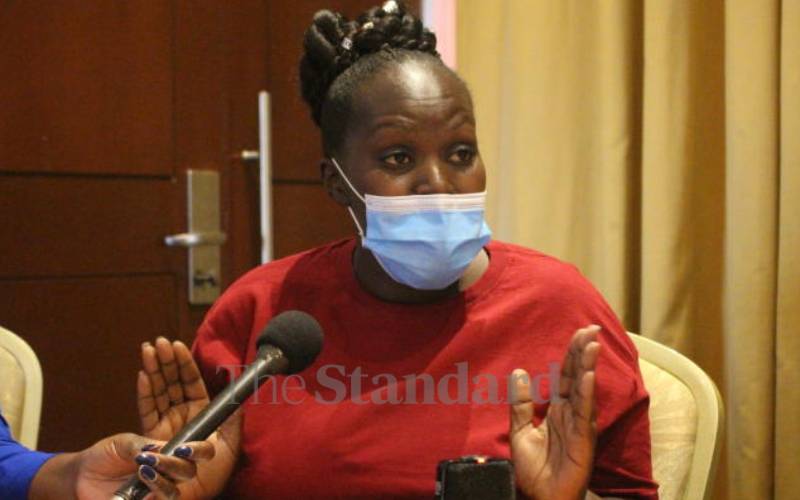
Tabitha Muthoni, 35, depends on blood transfusion. [Christopher Kipsang, Standard]
When she was 12 years old, Tabitha Muthoni was admitted at the Nakuru Level Five Hospital with dizziness and general body weakness.
On further examination, she was diagnosed with anaemia and started on blood transfusion.
Facts First
Unlock bold, fearless reporting, exclusive stories, investigations, and in-depth analysis with The Standard INSiDER subscription.
Already have an account? Login
 The Standard Group Plc is a multi-media organization with investments in media
platforms spanning newspaper print
operations, television, radio broadcasting, digital and online services. The
Standard Group is recognized as a
leading multi-media house in Kenya with a key influence in matters of national
and international interest.
The Standard Group Plc is a multi-media organization with investments in media
platforms spanning newspaper print
operations, television, radio broadcasting, digital and online services. The
Standard Group is recognized as a
leading multi-media house in Kenya with a key influence in matters of national
and international interest.











